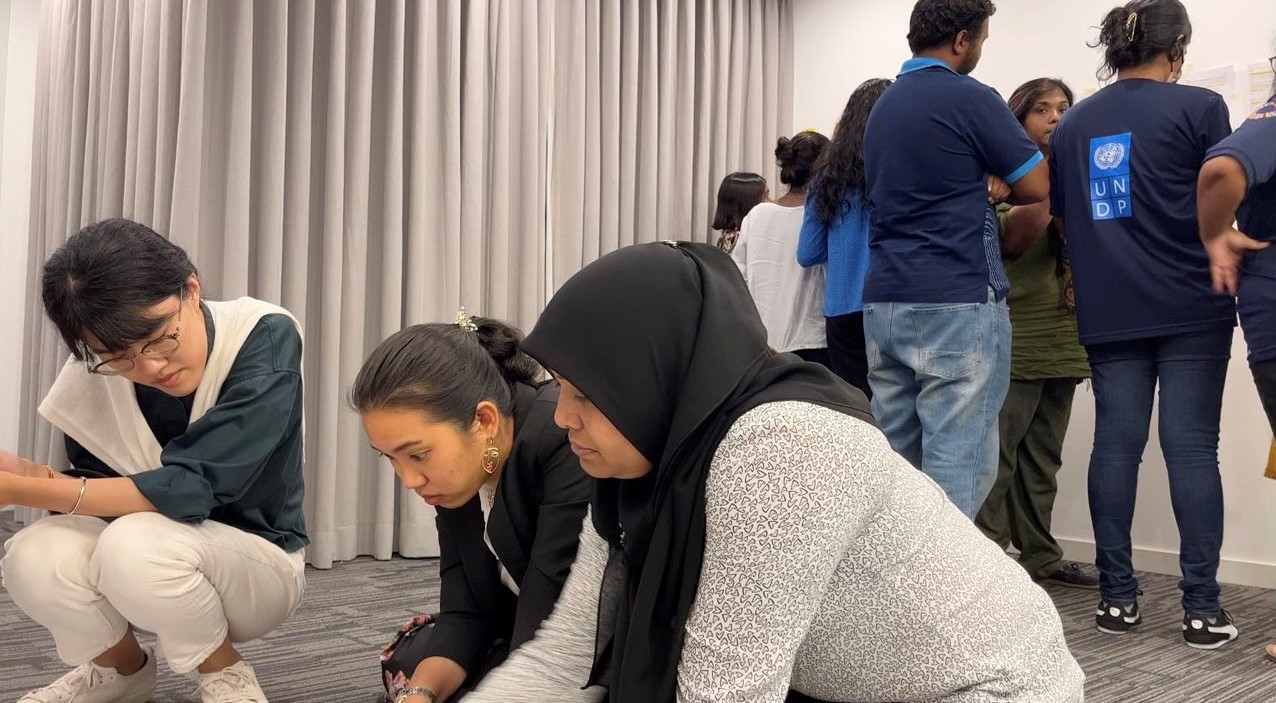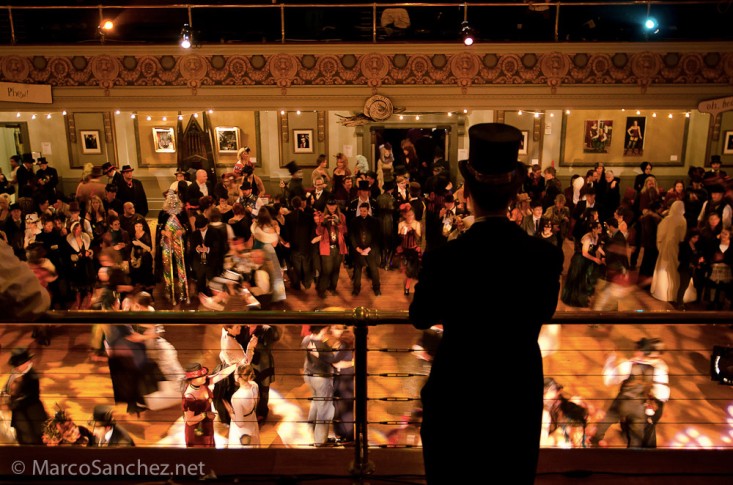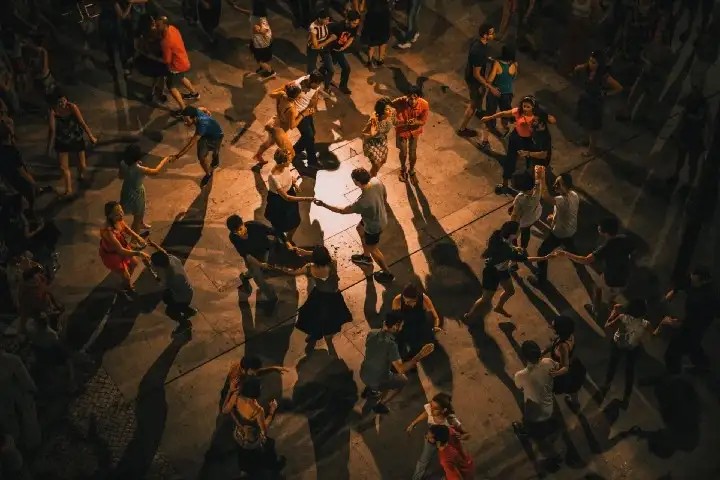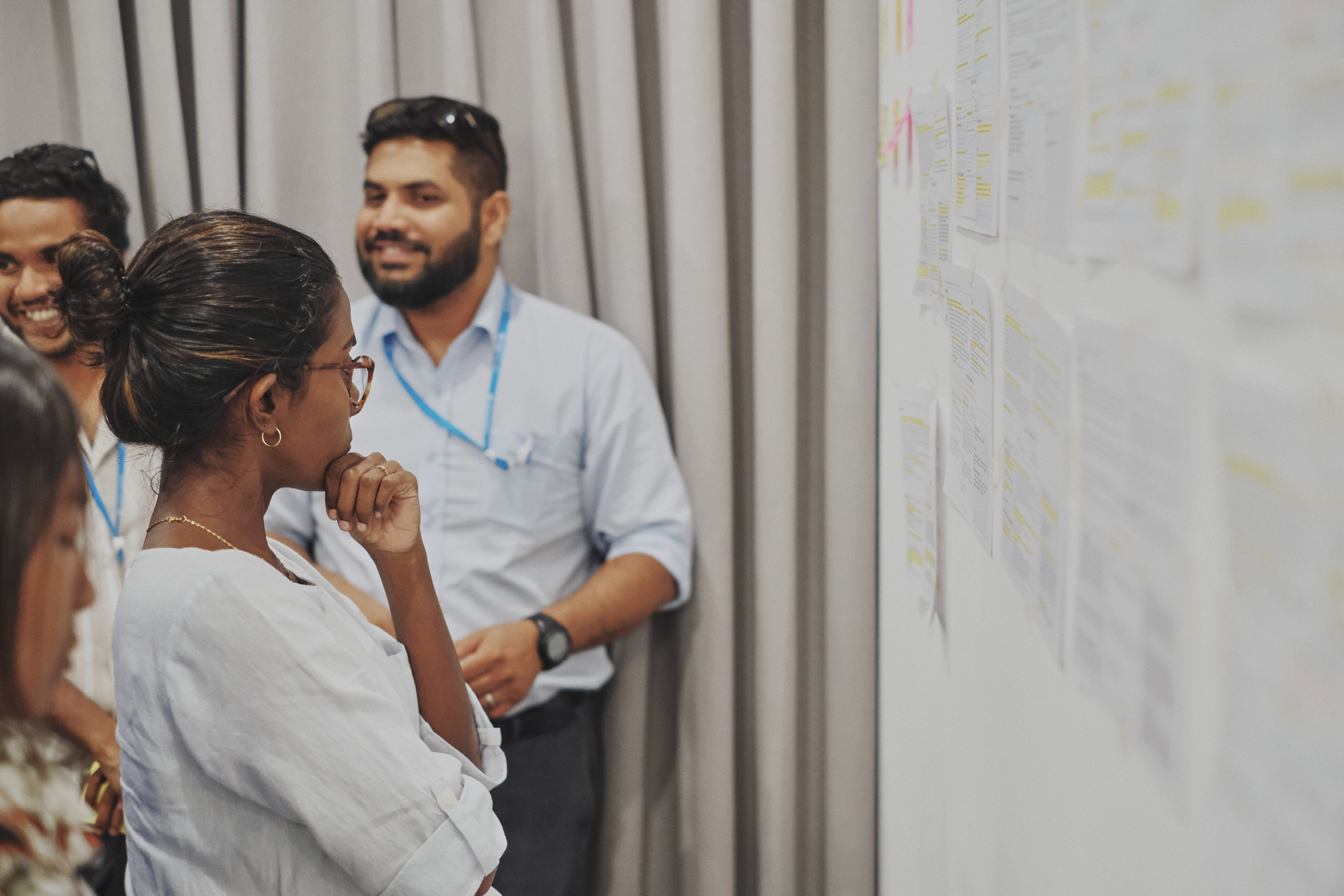A Blog on Sensemaking - by Vathanya Vichitlekarn
Collective Exploration
January 5, 2023

I first heard about Sensemaking when I joined UNDP in Maldives in January 2022. My first three months were not only an important period to me as a newcomer, trying to fully understand files that were coming in my way, but also to discover what the UNDP in the Maldives is all about.
It was the start of a journey with the new five-year Country Programme having just come into operation, with yearly strategic business plans setting the direction and overall team aspirations and targets. Then there was a Strategic Planning Retreat which opened a new space for dialogue with the adoption of structured conversations about the office moving forward. Our intents around this new journey, our strengths, identity, and the impacts we make suggested that it might be a good time for us to take a pause and rethink the way we work and observe in regular intervals what we have achieved. This was when ’sensemaking’ came into play.
In consideration of the curious minds who might wonder why such a small office in a small island state needs sensemaking, allow me to walk you through the UNDP Maldives Sensemaking exercise, and the experience of a three-day process delivered in a hybrid mode of in-person and virtual brainstorming activities.
“Get on the balcony”

I think we all can imagine what it is like when we are so committed to something that we forget about the other thousand (important) things happening around us. We know about that thing better than anyone else, no doubt, but why it is oftentimes other people who can point out the most obvious solutions to us – thus, the advantage of a birds-eye view from the “balcony”.
It is normal to be consumed by the need to deliver specific results in our projects and loose a sense of the bigger picture of what is happening in the rest of the programme. The sensemaking process helps by reiterating the importance of this metaphor.
Five staff were assigned as the people on the balcony. We called them the Mappers. One of the key roles of the mappers was to listen for five specific things – needs, resources and capabilities, partnerships and relationships, systemic effect, and gender dynamics – while the project team were doing the presentations around their intervention. The mappers performed the roles of those who make observations while teams “danced” at their project tunes from the balcony. They look for things that the project might have missed in the exposition of their experiences while delivering projects and most importantly they took note of insights in a refreshing exercise of pattern recognitions.
“The Dance Floor”

After identifying the Mappers and the key areas they need to focus on, the attention was turned to project teams.
We asked project managers to present the following about their projects in five minutes: What is the problem we are trying to solve? What impact is it that we make on the ground? Who are our partners? What are the things that they might have done differently. Follow-up questions from the Mappers included probing in-depth discussions and identifying emerging claims that required a response with a set of proposed actions. The process was repeated for 10 pre-selected projects. The Mappers then presented what they heard back to the dance floor, followed by two rounds of discussions.
A small group consisting of the Mappers and representatives from each unit then sat down together in the next facilitated process to produce an action plan originated by all claims collected and propositions on the way forward. This strategy was then presented back to all the project teams before it was finalized with senior management.
The new, or rather, more coordinated dance moves

After the intense facilitated rethinking process, we produced four claims and propositions which we will use to inform yearly business plans and help us in moving forward and more importantly, reshape our thinking and portfolio with a better sense of awareness of our achievements as well as occasional shortcomings. It has been obvious, since the Strategic Planning Retreat, that rather than 10 groups of projects doing 10 different dances, having a coordinated path of intentional connections across the portfolio should be the way to go.
We have since agreed to strengthen synergies among all projects since many teams share similar challenges and operate in a similar space and arena. We also work with the same group of stakeholders and partners and at the same time share the same challenges on a limited relationship we have with certain groups, particularly the private sector. Wouldn’t it be more impactful if we come together and explore new partnerships in a collaborative manner to enhance the UNDP value offer in Maldives?
Moreover, we reached agreement that the three UNDP corporate strategic plan development enablers – digitalization, innovation and financing – are key to achieving a higher level and more sustainable results. Consequently, the skills and capacity of staff in these areas need to be strengthened to match our visions. Cross-unit learning culture is a key. Resources will be needed to be mobilized, and capacities invested in for the office as well as our partners - which should find space within the portfolio across programmes.

Sensemaking shows that a pause is sometimes good and needed. This is one of the moments where we carve out of the routine of inward-looking project implementation, to help us deliver strategic development impact when faced with the challenge of system transformation. To bring about our Country Programme goals to the Government, we need to package our offer in a portfolio of interconnected interventions from design to implementation.
The process also brings all teams together to rethink and search for a common vision. We also embrace the fact that the journey to accelerate the promise we have made to our partners will always be challenging in the context of the Maldives. However, with our reaffirmation on the Statement of Intent (Country Programme), the north star we have agreed to walk towards to, together with the claims and propositions will help us to create more valuable and impactful results in the long run.
We also learned that at the pace of change today, the office needs to organically adapt and anticipate behaviors to be vigilant of trends, and be in search of signals to regenerate future thinking. We take one step at a time to chart the path towards that change. Sensemaking is now institutionalized in the office by our management, and I am looking forward to the next stop to chart our courses, gauge progress and course correct as we learn.
###

 Locations
Locations